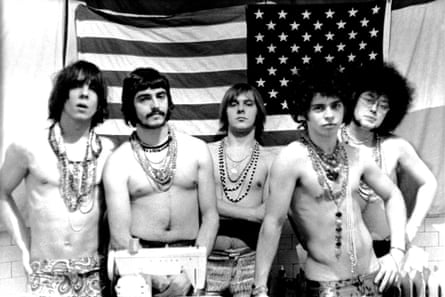Wayne Kramer, the co-founder of MC5, which was known for its raw and politically active music, has passed away at the age of 75. The announcement was made on his Instagram page, stating “Wayne S Kramer. May you rest in peace. April 30 1948 – February 2 2024.”
Kramer grew up in Detroit and joined forces with his teenage friend and fellow guitarist, Fred “Sonic” Smith. Their musical influences ranged from free jazz to R&B and rock’n’roll. Alongside lead singer Rob Tyner, they helped make MC5 a powerful presence in the city’s music scene, alongside other bands like the Stooges.
MC5 (short for Motor City 5) quickly built a formidable live reputation playing on bills with the likes of Cream, and were signed to Elektra in 1968. Their debut album, Kick Out the Jams, was released the following year: a live recording from Detroit’s Grande Ballroom where the band had made their name.
The band took pride in their humble beginnings and were fueled by a passion for revolution from the very beginning. Their manager, John Sinclair, formed the White Panther Party and the band spoke out against the Vietnam War and the Democratic National Convention. With powerful guitar riffs from Kramer and Smith, the phrase “kick out the jams” – shouted by Tyner on the title track of their album – became a symbol of rebellion and paved the way for the punk rock movement of the 1970s.
Kramer clarified that the popular interpretation of “Kick out the jams” as a call to dismantle restraints was not their intention when they wrote the song. Rather, it was meant as a message to bands who would often overindulge in jamming during performances.

Display the image in a larger size.
In 1970, the band moved to Atlantic Records and put out their initial album, Back in the USA. The following year, they released High Time. However, both albums were unsuccessful in terms of sales and unfortunately, due to financial struggles and drug addiction, MC5 disbanded in 1972.
Kramer maintained his involvement in the music industry while also participating in drug dealing. He served a four-year sentence after being arrested in 1975. Upon his release in 1979, he joined the funk-rock band Was (Not Was) and became a wandering presence in the underground music scene in New York City. However, he spent a majority of the 1980s away from the public eye, primarily working as a carpenter. In the mid-1990s, he returned to releasing music as a solo artist under punk label Epitaph Records.
Tyner and Smith passed away in the 1990s, but in 2001, Kramer put together a supergroup to play MC5 songs. The group included Ian Astbury from the Cult and Lemmy from Motorhead. Although the lineup changed over time, MC5 continued to tour and perform shows around the world. In 2018, they even went on a 50th anniversary tour. That same year, Kramer released his autobiography, titled The Hard Stuff: Dope, Crime, the MC5 and My Life of Impossibilities.
Before his passing, Kramer was getting ready to drop the highly anticipated third album for the band. He stated that he felt it was necessary to revive the essence of 1968 and the spirit of his generation when they were all young. With the current state of our history being perilous, he believed it was crucial for everyone to unite and take action before we risk losing everything, including democracy. He emphasized that the challenges we face are not to be taken lightly and require urgent attention.
A launch was scheduled for the spring of 2024.
Later on in his life, Kramer assisted in founding the American branch of Billy Bragg’s Jail Guitar Doors program, which supplied musical instruments to incarcerated individuals.
After Kramer’s passing, Tom Morello, who had previously worked with him, expressed his condolences. Morello, who is the guitarist for Rage Against the Machine, described Kramer as the greatest person he had ever met. He also highlighted Kramer’s unique combination of wisdom, compassion, empathy, and conviction.
Source: theguardian.com


